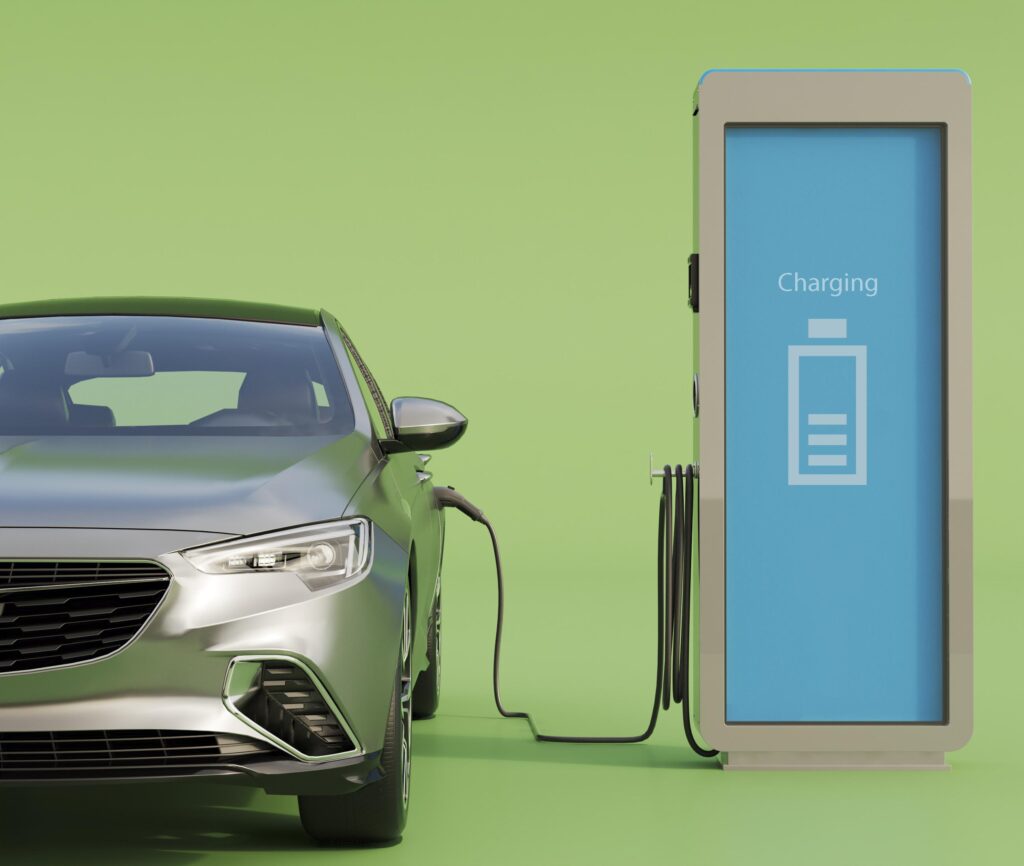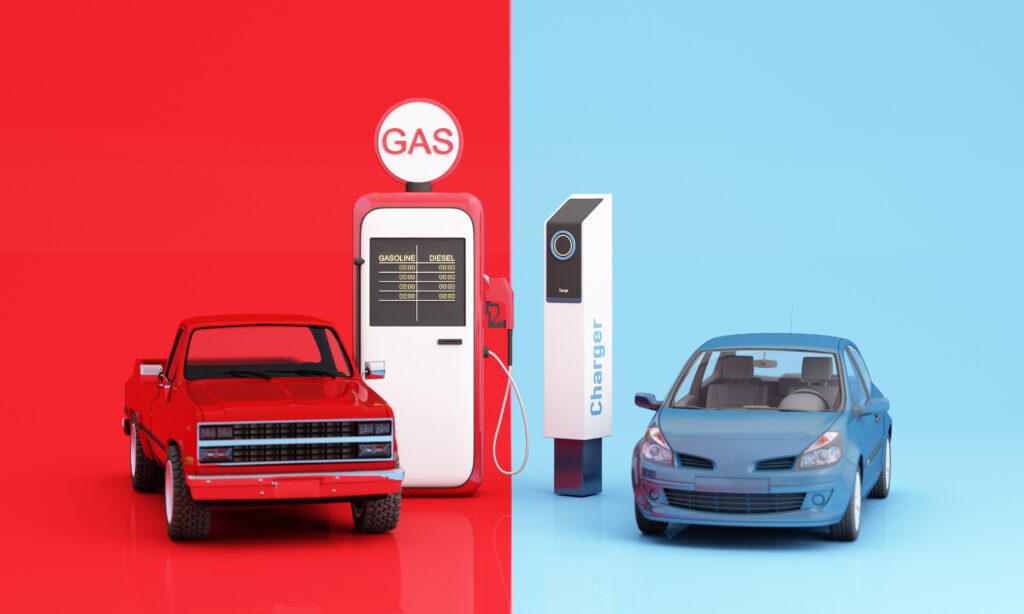Table of Contents
Table of Contents
With petrol prices hovering around £1.45 per litre and energy bills still making headlines, many UK drivers are asking a crucial question: are electric cars really cheaper to run than petrol vehicles? The short answer is yes – but the reality is more nuanced than the headlines suggest.
Electric cars cost approximately 60-70% less to run than petrol vehicles when comparing fuel and energy costs alone. For the average UK driver covering 8,000 miles annually, this translates to savings of £800-£1,200 per year. However, the complete picture includes purchase prices, maintenance costs, insurance, and depreciation – factors that can significantly impact your total cost of ownership.
Recent analysis by What Car? found that electric cars now cost less to own and run than their petrol equivalents over three years for most popular models. But with EV prices still carrying a premium and charging infrastructure concerns, making the right financial decision requires understanding the complete cost breakdown.
Let’s examine the real numbers behind electric car vs petrol car running costs in the UK, using current pricing data and real-world examples to help you make an informed decision about your next vehicle purchase.
Fuel and Energy Costs: The Biggest Difference
The most dramatic cost difference between electric and petrol vehicles lies in fuel versus energy costs. This is where EVs demonstrate their clearest financial advantage over traditional combustion engines.
Current UK Fuel Costs
Petrol costs have stabilised around £1.40-£1.50 per litre across the UK, with premium unleaded adding another 10-15p per litre. For an average family car achieving 40mpg, this translates to approximately 18-22p per mile in fuel costs.
Diesel vehicles offer better fuel economy but at higher fuel costs (£1.50-£1.60 per litre). A typical diesel car achieving 50mpg costs around 14-18p per mile in fuel – better than petrol but still significantly more expensive than electric alternatives.
Electric Car Energy Costs

Home charging remains the most cost-effective option for EV owners, typically costing 7-15p per mile depending on your electricity tariff and vehicle efficiency. Using a standard domestic tariff (around 30p per kWh), most electric cars cost 8-12p per mile to charge at home.
Off-peak charging tariffs like Octopus Go or Economy 7 can reduce costs to just 4-8p per mile. These specialist tariffs offer electricity at 7.5-20p per kWh during overnight periods, making home charging incredibly cost-effective.
Public charging costs more but remains competitive with petrol. Rapid charging typically costs 45-75p per kWh, translating to 15-25p per mile – still broadly comparable to petrol costs while offering the convenience of faster charging.
Real-World Cost Comparison
Annual fuel costs for 8,000 miles:
- Petrol car (40mpg): £1,440-£1,760
- Diesel car (50mpg): £1,120-£1,440
- Electric car (home charging): £640-£960
- Electric car (off-peak charging): £320-£640
These figures demonstrate potential annual savings of £480-£1,120 for electric cars compared to petrol vehicles, with the highest savings achieved through off-peak home charging.
Purchase Price and Depreciation Analysis
While running costs favour electric vehicles, purchase prices tell a different story. New EVs typically cost £3,000-£8,000 more than equivalent petrol models, though this gap is narrowing rapidly.
New Vehicle Price Comparison
Compact Cars:
- Vauxhall Corsa (petrol): £18,000-£22,000
- Vauxhall Corsa-e (electric): £26,000-£30,000
- Price premium: £8,000
Family Hatchbacks:
- Volkswagen Golf (petrol): £25,000-£35,000
- Volkswagen ID.3 (electric): £30,000-£40,000
- Price premium: £5,000
Premium Models:
- BMW 3 Series (petrol): £35,000-£45,000
- BMW i4 (electric): £42,000-£55,000
- Price premium: £7,000-£10,000
Government Incentives
While the plug-in car grant ended for most vehicles in 2022, company car benefits remain substantial. Electric vehicles attract 0% Benefit-in-Kind tax compared to 20-37% for petrol cars, creating significant savings for business users.
Salary sacrifice schemes can reduce EV costs by 30-40% for employees, making electric cars more affordable than their petrol equivalents for many workers.
Depreciation Patterns
Electric car depreciation has historically been steep, but recent trends show stabilisation. Premium EVs like Tesla Model 3 and BMW i4 now retain 55-65% of their value after three years, comparable to petrol equivalents.
Petrol car depreciation remains predictable at 50-60% over three years for mainstream models, with premium brands achieving 60-70% retention.
Maintenance and Servicing Costs
Electric vehicles offer substantial maintenance savings due to their simpler mechanical design. This represents a significant long-term cost advantage that many buyers overlook.
Electric Car Maintenance
Annual servicing costs for EVs typically range from £150-£300, focusing primarily on brake inspections, tyre rotation, and software updates. Many manufacturers offer fixed-price servicing plans at £200-£250 annually.
Major component replacement risks are lower for EVs. Electric motors have far fewer moving parts than combustion engines, reducing the likelihood of expensive failures. Battery warranties typically cover 8 years or 100,000 miles.
Brake wear is significantly reduced in EVs due to regenerative braking, potentially extending brake pad life by 2-3 times compared to petrol cars.
Petrol Car Maintenance

Annual servicing costs for petrol cars typically range from £300-£600, including oil changes, filter replacements, and component inspections. Premium brands can cost £500-£1,000 annually for comprehensive servicing.
Major component risks increase with age. Timing belts (£500-£1,200), clutches (£800-£1,500), and exhaust systems (£300-£800) represent significant potential costs for petrol vehicles.
Consumable costs are higher for petrol cars. Regular oil changes, air filters, spark plugs, and other consumables add £200-£400 annually to running costs.
Long-Term Maintenance Comparison
5-year maintenance costs:
- Electric car: £750-£1,500
- Petrol car: £1,500-£3,000
- Potential savings: £750-£1,500
Insurance and Tax Considerations
Insurance costs for electric vehicles have historically been higher due to expensive repairs and limited specialist knowledge. However, this gap is narrowing as the market matures.
Insurance Cost Comparison
Electric car insurance premiums are typically 10-20% higher than petrol equivalents, though this varies significantly by model and insurer. Factors affecting EV insurance costs include:
- Higher repair costs due to specialised parts
- Limited number of approved repair centres
- Expensive battery replacement costs
- Advanced technology requiring specialist knowledge
Petrol car insurance benefits from established repair networks and readily available parts, resulting in lower premiums for most models.
Road Tax (VED) Benefits
Electric vehicles pay £0 road tax for the first year and £0 annually thereafter (for cars costing under £40,000). Expensive EVs over £40,000 pay the standard rate of £370 annually from years 2-6.
Petrol cars pay £165-£2,245 first-year VED depending on CO2 emissions, then £165 annually. Premium models over £40,000 pay an additional £370 annually for five years.
Congestion and Clean Air Zones
Electric vehicles are exempt from London’s Congestion Charge (£15 daily) and ULEZ charges (£12.50 daily). For regular London drivers, this saves £2,000-£4,000 annually.
Petrol cars face increasing charges in UK cities implementing clean air zones, with costs ranging from £8-£12.50 daily depending on location.
Total Cost of Ownership Analysis
Combining all cost factors provides the clearest picture of electric vs petrol vehicle economics. The results vary significantly depending on individual usage patterns and vehicle choices.
3-Year Cost Comparison: Compact Cars
Nissan Leaf vs Nissan Micra (8,000 miles annually):
Nissan Leaf (Electric):
- Purchase price: £28,000
- Depreciation (3 years): £11,200
- Energy costs: £1,920
- Maintenance: £450
- Insurance premium: £400
- Road tax: £0
- Total 3-year cost: £13,970
Nissan Micra (Petrol):
- Purchase price: £18,000
- Depreciation (3 years): £7,200
- Fuel costs: £4,320
- Maintenance: £900
- Insurance: £0 (baseline)
- Road tax: £495
- Total 3-year cost: £12,915
Difference: £1,055 more expensive for electric
3-Year Cost Comparison: Family Cars
Volkswagen ID.3 vs Golf (12,000 miles annually):
Volkswagen ID.3 (Electric):
- Purchase price: £32,000
- Depreciation (3 years): £12,800
- Energy costs: £2,160
- Maintenance: £600
- Insurance premium: £300
- Road tax: £0
- Total 3-year cost: £15,860
Volkswagen Golf (Petrol):
- Purchase price: £28,000
- Depreciation (3 years): £11,200
- Fuel costs: £6,480
- Maintenance: £1,350
- Insurance: £0 (baseline)
- Road tax: £495
- Total 3-year cost: £19,525
Difference: £3,665 savings for electric
5-Year Cost Comparison: Premium Cars
BMW i4 vs 3 Series (15,000 miles annually):
BMW i4 (Electric):
- Purchase price: £45,000
- Depreciation (5 years): £22,500
- Energy costs: £4,500
- Maintenance: £1,000
- Insurance premium: £500
- Road tax: £1,850 (over £40k)
- Total 5-year cost: £30,350
BMW 3 Series (Petrol):
- Purchase price: £38,000
- Depreciation (5 years): £19,000
- Fuel costs: £13,500
- Maintenance: £2,250
- Insurance: £0 (baseline)
- Road tax: £2,675
- Total 5-year cost: £37,425
Difference: £7,075 savings for electric
Break-Even Analysis by Usage Pattern
The financial case for electric vehicles strengthens with higher mileage and longer ownership periods. Understanding your break-even point is crucial for making the right decision.
Low Mileage Drivers (5,000 miles annually)
For drivers covering just 5,000 miles annually, the break-even point for most electric cars occurs around 4-5 years. Lower fuel savings mean the higher purchase price takes longer to recover.
Annual fuel savings: £300-£500 Typical EV premium: £3,000-£6,000 Break-even period: 6-10 years
Average Mileage Drivers (8,000-12,000 miles annually)
Most UK drivers fall into this category and typically see break-even within 3-4 years. This sweet spot maximises the benefit of lower running costs while minimising the impact of higher purchase prices.
Annual fuel savings: £500-£800 Typical EV premium: £3,000-£6,000 Break-even period: 4-6 years
High Mileage Drivers (15,000+ miles annually)
High-mileage drivers see the fastest payback, often achieving break-even within 2-3 years. Fleet operators and long-distance commuters benefit most from electric vehicle economics.
Annual fuel savings: £1,000-£1,500 Typical EV premium: £3,000-£6,000 Break-even period: 2-4 years
Regional Cost Variations
Electric car running costs vary across the UK due to different electricity prices, fuel costs, and charging infrastructure availability.
Regional Electricity Prices
Scotland often offers the lowest electricity costs due to abundant renewable generation, potentially reducing EV running costs by 5-10% compared to southern England.
London and South East typically face the highest electricity prices, though comprehensive public charging networks can offset some disadvantages.
Northern England and Wales generally offer competitive electricity prices while maintaining good charging infrastructure coverage.
Regional Fuel Price Variations
Petrol prices vary by 10-15p per litre across the UK, with remote areas often paying premiums. Urban areas typically offer the most competitive pricing.
Public charging costs vary significantly by region, with London charging networks often commanding premium rates while Scotland offers more competitive pricing.
Future Cost Trends and Predictions
Several factors will influence the electric car vs petrol cost comparison over the coming years, potentially shifting the economics further in favour of electric vehicles.
Expected Cost Changes
Battery technology improvements will reduce EV purchase prices by an estimated 10-15% by 2026, narrowing the initial price gap with petrol cars.
Petrol price volatility will likely continue, with potential increases due to carbon taxes and reduced refining capacity as demand decreases.
Electricity price stability from renewable energy expansion should benefit EV owners, though network upgrade costs might temporarily increase prices.
Policy Impacts
2030 petrol car ban will accelerate EV adoption, increasing used EV availability and improving depreciation rates.
Company car tax benefits for EVs will continue, maintaining strong incentives for business users.
Clean air zones expansion across UK cities will increase petrol car running costs while keeping EVs exempt.
Making Your Decision: Key Considerations

Choosing between electric and petrol depends on your specific circumstances, driving patterns, and financial priorities.
Electric Cars Make Financial Sense If:
- You drive more than 8,000 miles annually
- You have access to home charging
- You can utilise off-peak electricity tariffs
- You’re eligible for company car tax benefits
- You regularly drive in congestion charge zones
- You’re keeping the vehicle for 3+ years
Petrol Cars May Be Better If:
- You drive less than 5,000 miles annually
- You frequently make long journeys without charging access
- You need to minimise upfront costs
- You’re uncertain about long-term EV ownership
- You live in an area with limited charging infrastructure
Frequently Asked Questions
How much cheaper is it to run an electric car vs petrol in the UK? Electric cars typically cost 60-70% less to run than petrol vehicles, with annual savings of £500-£1,200 for average drivers. Home charging offers the greatest savings, while public charging remains competitive with petrol costs.
When do electric cars become more cost-effective than petrol? Most electric cars achieve cost parity with petrol equivalents within 3-4 years for average drivers. High-mileage drivers can see payback in 2-3 years, while low-mileage drivers may need 5-6 years.
Are electric cars really cheaper to maintain than petrol cars? Yes, electric cars typically cost 50-70% less to maintain due to simpler mechanical design, fewer moving parts, and reduced brake wear. Annual maintenance costs average £150-£300 for EVs vs £300-£600 for petrol cars.
How much does it cost to charge an electric car compared to filling up with petrol? A full charge for most electric cars costs £8-£15 at home, providing 200-300 miles of range. Equivalent petrol costs £50-£75 for the same distance. Public charging costs £20-£40 for a full charge.
Do electric cars hold their value better than petrol cars? Electric car depreciation has stabilised, with premium models now retaining 55-65% of their value after three years – comparable to petrol equivalents. However, rapid technology advancement can impact older EV values.
What are the hidden costs of electric car ownership? Main hidden costs include higher insurance premiums (10-20% increase), potential home charging installation costs (£500-£1,500), and possible battery replacement after 8-10 years (£3,000-£8,000).
How do company car tax benefits affect electric vs petrol costs? Electric vehicles attract 0% Benefit-in-Kind tax vs 20-37% for petrol cars, creating savings of £2,000-£8,000 annually for higher-rate taxpayers. This often makes EVs cheaper than petrol equivalents for business users.
The Bottom Line: Electric Cars Are Cheaper to Run
The evidence is clear: electric cars cost significantly less to run than petrol vehicles for most UK drivers. While higher purchase prices remain a barrier, the combination of lower fuel costs, reduced maintenance, and tax benefits creates compelling long-term savings.
For drivers covering average mileages and keeping vehicles for 3+ years, electric cars typically offer total cost savings of £3,000-£7,000 over the ownership period. These savings increase with higher mileage and longer ownership, making EVs particularly attractive for fleet operators and high-mileage drivers.
The financial case will only strengthen as battery costs decrease, charging infrastructure expands, and petrol prices face increasing volatility. Combined with environmental benefits and improving technology, electric vehicles represent both a financially sound and future-focused choice for most UK drivers.
Ready to explore your potential savings? Calculate your specific costs based on your driving patterns, investigate available electric models in your price range, and consider the long-term financial benefits of making the switch to electric driving.


